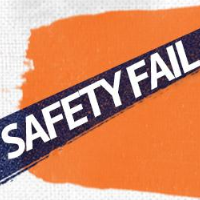11 Years Later, Disabled Patients Still at Risk in Underfunded Developmental Centers

In 2002, the California Attorney General’s office noted in a report that the law enforcement division at state-run centers for developmentally disabled patients was underfunded, ill-prepared and did a lousy job. It recommended 28 changes.
A report (pdf) this week from the California State Auditor listed those 28 recommendations by way of pointing out that too many of them have gone unattended to, resulting in insufficient safety for patients, employees and visitors. The now-defunct, online journalism outfit California Watch detailed the human toll in a 2012 series of stories that was a finalist for the Pulitzer Prize.
Ryan Gabrielson wrote about dozens of women who were sexually assaulted inside the state’s five regional centers, a caregiver suspected of tasering a dozen patients and other incidents that were barely investigated by the Office of Protective Services (OPS). California Watch’s conclusion was that the department often failed to secure crime scenes and mishandled, or skipped, interviews with witnesses and suspects, which meant it had an “alarming inability to solve crimes.”
The auditor concurred. Not only could OPS not solve crimes, it couldn’t establish cases strong enough for prosecutors to pursue. The California Department of Developmental Services, which takes care of 1,480 patients at the board-and-care facilities, received 4,345 allegations of patient abuse the past five years. After OPS got through with the cases, only 82 were deemed strong enough to send to prosecutors.
The auditor found that health care staff members didn’t always let OPS know about an incident in a timely fashion, and that once informed, “law enforcement personnel did not consistently follow established procedures for investigations of alleged resident abuse. Specifically, OPS often failed to collect written declarations from suspects and witnesses, take photographs of crime scenes or alleged victims, and attempt to interview alleged victims, particularly residents said to be nonverbal.”
Although multiple reasons were given for OPS lapses, the 43% vacancy rate among officers stood out. OPS officers get paid less than their conterparts in local law enforcement, are called on for loads of overtime, have Pulitzer-worthy deficiencies in their working conditions and, according to the auditor, ought to be receiving special training to handle their special needs patients, but don’t.
The state Department of Public Health, which has oversight responsibilities at the centers, also came in for a share of the auditor’s criticism. The report said the department hasn’t performed licensing surveys “on time or at all” and hasn’t promptly completed investigations of incidents “it classifies as less serious.” But the auditor isn’t sure exactly what the department has failed to do because it hasn’t provided a required report on the effectiveness of its enforcement practices.”
–Ken Broder
To Learn More:
California Auditor: Developmental Center Police Failed to Protect Patients (by Ryan Gabrielson, Center for Investigative Reporting)
California Facilities Put Disabled at Risk, Audit Finds (by Patrick McGreevy, Los Angeles Times)
State Gives up Millions of Federal Dollars over Disability Center Abuse (by Ken Broder, AllGov California)
Audit of Developmental Centers (California State Auditor) (pdf)
- Top Stories
- Controversies
- Where is the Money Going?
- California and the Nation
- Appointments and Resignations
- Unusual News
- Latest News
- California Forbids U.S. Immigration Agents from Pretending to be Police
- California Lawmakers Urged to Strip “Self-Dealing” Tax Board of Its Duties
- Big Oil’s Grip on California
- Santa Cruz Police See Homeland Security Betrayal in Use of Gang Roundup as Cover for Immigration Raid
- Oil Companies Face Deadline to Stop Polluting California Groundwater





